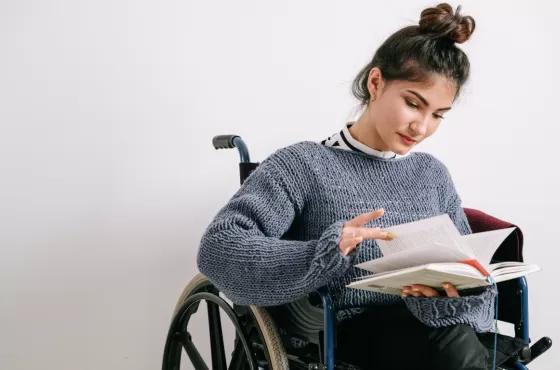The convention is significant as it recognises the inherent dignity and equal rights of persons with disabilities and seeks to eliminate discrimination.
Human rights of people with disability are fundamental to the universal principles of human rights and must be upheld to ensure that every person can achieve their full potential.
Principles
The principles of the UNCRPD aim to ensure those countries who become a signatory to and ratify the Convention are kept accountable. The principles of the current convention are:
- Respect for inherent dignity, individual autonomy including the freedom to make one's own choices, and independence of persons;
- Non-discrimination;
- Full and effective participation and inclusion in society;
- Respect for difference and acceptance of persons with disabilities as part of human diversity and humanity;
- Equality of opportunity;
- Accessibility;
- Equality between men and women;
- Respect for the evolving capacities of children with disabilities and respect for the right of children with disabilities to preserve their identities.
Key Issues
The UNCRPD addresses several key issues that people with disability face. This includes:
- Discrimination: Persons with disabilities have the right to be treated equally and without discrimination in all areas of life. This includes education, employment, and access to goods and services.
- Accessibility: Persons with disabilities have the right to access things like buildings, public transport, and information and communication technologies.
- Emergencies: All necessary measures are met to ensure the protection and safety of people with disability during situations of armed conflict, humanitarian emergencies, and natural disasters.
- Participation and inclusion: Persons with disabilities have the right to participate fully in all aspects of society and to be included in decision-making processes that affect their lives.
- Respect for inherent dignity: People with disabilities have the right to be treated with respect and dignity, have an inherent right to life and must have their privacy protected.
- Support for independent living: People with disabilities have the right to access the resources and support they need to live independently and participate fully in society.
Australia’s involvement
Australia became a signatory to the convention in 2008 and ratified it in 2009. Since then, we have strived to align policies, laws, and practices with the standards set out in the treaty. By ratifying the UNCRPD, Australia has agreed to adhere to its principles and work towards creating a society that is more inclusive and equitable.
How Australia is meeting the UNCRPD
One of the key objectives of the convention is to promote full and effective participation and inclusion in society, as week as have the respect of individual autonomy and independence. In this regard, the Australian government has introduced several laws and initiatives aimed at improving access to services, support and choice for people with disability.
The National Disability Insurance Scheme was launched in 2013 and has sought to provide adequate support to people with disability and their families, while providing them with choice and control.
The scheme aims to provide participants of the scheme with the funding and support to gain greater independence, access to new skills, jobs, or volunteering in their community, and an improved quality of life.
Another significant element is the recognition of the rights of people with disability in the Australian Human Rights Framework. The framework aims to promote and protect human rights, including the rights of people with disability, through legislation and policy. The framework also provides a mechanism for monitoring and reviewing the implementation of the UNCRPD in Australia.
Importance of the Convention
The UNCRPD is an essential treaty that recognizes the dignity, equality, and human rights of people with disabilities. Australia's commitment has been reflected in the government's policies, laws, and initiatives aimed at promoting full and effective participation of people with disabilities in society.
The UNCRPD provides a framework for countries to work towards creating a more inclusive and equitable society, and Australia's involvement is a significant step towards achieving this goal.
